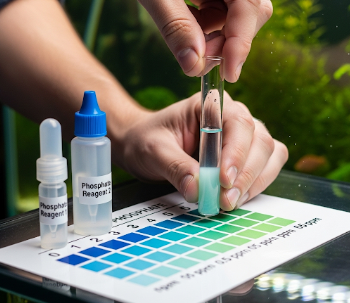What it is
A phosphate test is a blood test that measures the level of phosphate (inorganic phosphorus) in the body. Phosphate is an essential mineral that plays a critical role in:
➡ Key functions:
- Bone and teeth formation → Works alongside calcium for strong bones and teeth
- Energy production → Component of ATP, which provides energy for cells
- Cell signaling and metabolism → Helps regulate various biochemical processes
💡 Importance of testing:
- Ensures proper metabolic function
- Detects abnormal phosphate levels, which can indicate underlying health conditions
- Commonly ordered as part of routine blood panels or for monitoring specific medical conditions
In Korea, phosphate tests are widely available in hospitals, clinics, and diagnostic laboratories, with rapid results and accurate laboratory standards.
Why it’s done
Phosphate testing is done to evaluate mineral balance, bone health, kidney function, and metabolic disorders.
➤ Medical indications include:
- Kidney disease → High phosphate levels may occur in chronic kidney disease (CKD)
- Bone disorders → Osteomalacia, rickets, or osteoporosis
- Hormonal disorders → Parathyroid hormone (PTH) imbalances affecting phosphate regulation
- Nutritional deficiencies or excesses → Low phosphate due to malnutrition, alcoholism, or vitamin D deficiency
- Monitoring therapy → Patients on phosphate binders, supplements, or certain medications
➤ Key benefits:
- Detect mineral imbalances early
- Guide dietary and medication adjustments
- Monitor progress in kidney or bone disease management
- Help diagnose underlying metabolic or hormonal disorders
Alternatives
While phosphate testing is straightforward and reliable, complementary or alternative tests may include:
✔ Calcium test → Often paired with phosphate to assess bone and mineral metabolism
✔ Vitamin D test → Evaluates vitamin D status affecting phosphate absorption
✔ Parathyroid hormone (PTH) test → Detects endocrine causes of abnormal phosphate levels
✔ Kidney function tests (creatinine, eGFR) → Assess renal contribution to phosphate regulation
✔ Urinary phosphate test → Measures phosphate excretion to determine kidney handling
Note: A combined assessment of phosphate, calcium, and vitamin D is common for a complete evaluation of bone and metabolic health.
Preparation
Proper preparation ensures accurate phosphate test results:
🔹 Fasting requirements
- Patients may be asked to fast for 8–12 hours before the blood draw
- Avoid phosphate-rich supplements or medications unless instructed
🔹 Medication disclosure
- Inform the clinician about diuretics, phosphate supplements, vitamin D, or antacids, as they can affect results
🔹 Hydration
- Drink water to facilitate blood draw, but avoid sugary or caffeinated beverages
🔹 Patient education
- Understand the purpose of the test
- Know how results will be used to guide treatment or monitoring
How it’s done
The phosphate test is a simple blood test, typically performed in a laboratory or hospital setting:
➡ Step-by-step procedure:
- Blood draw
- A healthcare professional cleans the area (usually inside of the elbow)
- Uses a needle to collect a small blood sample into a vial
- Laboratory analysis
- Blood is analyzed for inorganic phosphate levels
- Normal adult range: 2.5–4.5 mg/dL (0.81–1.45 mmol/L); ranges may vary slightly between labs
- Reporting results
- Results are interpreted in context with calcium, kidney function, and overall health
- High or low phosphate levels may prompt additional testing or dietary adjustments
💡 Tips for accuracy:
- Follow fasting instructions carefully
- Avoid strenuous exercise immediately before the test
- Inform the lab about recent illness or medication changes
Recovery / Expected Outcomes
Phosphate testing is minimally invasive, and no recovery is needed beyond post-blood draw care:
🔹 Post-test recommendations:
- Apply gentle pressure to the puncture site to prevent bruising
- Resume normal diet unless otherwise instructed
🔹 Clinical outcomes:
- Normal phosphate levels indicate adequate mineral and metabolic balance
- Abnormal results guide further evaluation for kidney, bone, or hormonal disorders
- Helps track response to treatment for conditions like CKD, vitamin D deficiency, or bone disease
💡 Patient benefits:
- Early detection of metabolic or endocrine disorders
- Supports preventive health and chronic disease management
- Enables personalized treatment plans based on laboratory data
Complications / Considerations
The phosphate test is generally safe, but minor considerations include:
⚠ Discomfort or bruising → May occur at the blood draw site
⚠ Fainting or dizziness → Rare, more common in patients with needle anxiety
⚠ Medication or dietary interference → Can affect phosphate readings
Mitigation:
- Proper blood draw technique by trained staff
- Fasting and preparation as instructed
- Repeat testing if results are unexpected or inconsistent
Treatment Options in Korea
Phosphate testing is widely accessible in hospitals, clinics, and diagnostic laboratories across Korea:
🏥 Hospitals and centers offering phosphate tests:
- Seoul National University Hospital (SNUH) → Full metabolic and mineral panel testing
- Asan Medical Center → Laboratory services with rapid reporting and specialist consultations
- Samsung Medical Center → Advanced diagnostic testing and integration with endocrinology and nephrology
- Community clinics and diagnostic labs → Affordable and convenient testing with quick results
💰 Insurance and cost:
- National Health Insurance partially covers routine blood tests including phosphate levels
- Private insurance may cover more comprehensive panels or repeat testing
- Costs may vary depending on hospital, test complexity, and accompanying laboratory tests
🔹 Additional support:
- Dietitians can advise on phosphate-rich or phosphate-restricted diets
- Endocrinologists and nephrologists provide treatment guidance for abnormal levels
- Patient education for long-term management of metabolic or bone disorders













